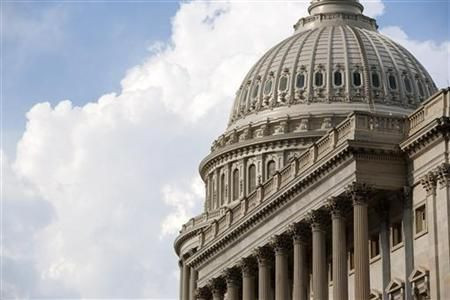Religious Leaders to Call on U.S. Senators to Preserve Foreign Assistance Funding

Leaders of several Christian, Jewish and Muslim religious denominations and faith-based organizations will meet with a group of U.S. Senators on Capitol Hill on Monday as part of an effort to preserve foreign assistance funding prior to the Senate's consideration of the FY 2012 Appropriations Act for the Department of State, Foreign Operations and Related Programs.
The clergy aims to discuss the relationship between ethical values and the U.S. foreign assistance policy -- particularly the moral obligations wealthier nation's have to look out for struggling countries -- and convince Senators to preserve all funding for those programs.
The religious leaders are in Washington, D.C at the invitation of Sen. Christopher Coons, D-Del., but it is unclear as to who else they will meet with.
Many of the religious leaders and organizations participating in the conversation are member of the Faithful Budget Campaign, a faith-affiliated advocacy group that has been holding weekly prayer vigils at Capitol Hill since the summer to ask the congressional Super Committee tasked with making $1.2 billion in budget cuts to spare safety net programs that assist the nation's poorest citizens.
Typically progressive and conservative organizations are coming together to deliver a true interfaith message, Douglas Grace, the director of ecumenical advocacy for Global Peace and Justice, told the International Business Times.
30-Organization Coalition
Grace, an active member of the campaign, said it began during the summer during the congressional stalemate over the federal debt ceiling. Now consisting of almost 30 organizations, the campaign hopes to persuade lawmakers to preserve social programs such as Medicare, Medicaid and Social Security that many low-income people rely on simply to survive.
It's often said houses of worship can take over these programs and we'll do our part. But there is no way they can take over for all of the responsibilities of the federal government in that way, Grace said.
Grace said the campaign does not limit itself to domestic spending because we have a moral responsibility to help the poor no matter their nationality. Plus, he pointed out that humanitarian and poverty-focused foreign assistance only makes up about 1 percent of the federal budget.
The campaign is currently organizing a prayer vigil across from the White House at Lafayette Park on Nov. 20, which will be jointed by smaller vigils across the country. The other vigils will be held in the home-districts of some members of the Congressional Joint Select Committee on Deficit Reduction -- known as the Super Committee --, who are tasked with cutting the federal budget by Nov. 23.
Grace said the members of congress who have advocated cutting programs for the poor need to understand that shared sacrifice -- a phrase that has been thrown around by the GOP to justify some proposed cuts -- means the wealthy also have to make some sacrifices for the well-being of their nation.
They talk about shared sacrifice, we talk about the shared need for commitment, Grace said. We've been trying to communicate that our faith compels us to protect the interests of those who cannot do it for themselves.
© Copyright IBTimes 2024. All rights reserved.





















